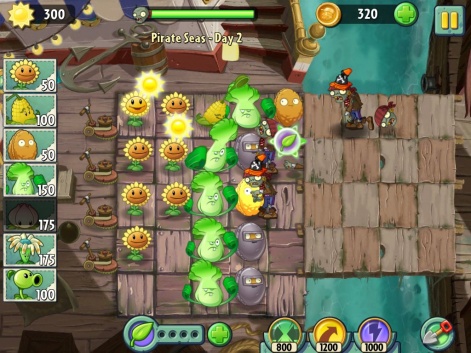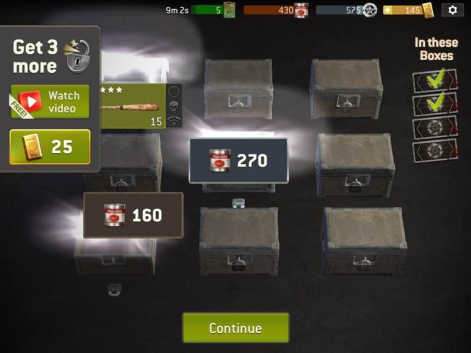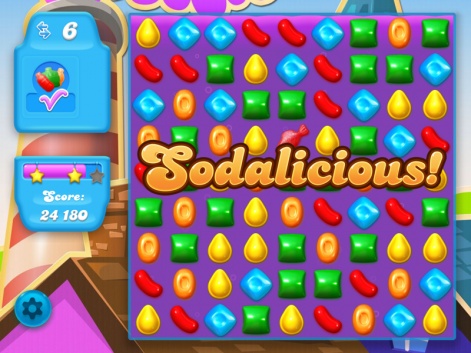Torulf Jernström is CEO of Finnish developer Tribeflame.
His blog is Pocket Philosopher and you can read all his weekly PocketGamer.biz columns here.
F2P games can be split into the core game (the gameplay) and the meta game.
The core game is the part that people recognise as a real game. It will have some challenge to it, usually either a mental challenge, like in puzzle games, or a reaction challenge like in action games.
The meta game is really about progress - and is some form of "the more you grind (or pay) the further you will get".
Where's the game?
Some of the games I have played the most, didn't really have a core game. At times, they were just a progression loop.
A progression loop that feels really, really good.
The most obvious example of this are games like
You buy businesses, they generate money and then you buy more businesses and they generate more money - until you are quickly in ridiculous amounts of money territory.
Some of the games I have played the most, didn't really have a core game.
They simply made you progress along an exponential curve, and that feels really good.
You keep on becoming twice as good every time you play. Of course, if you plot that on a log scale, it's just a regular straight line again - just as the plots you see of Moore's Law.
Tap here
Last week, I wrote about the loop in Hill Climb Racing, where you upgrade a car, try it out a few times, realise you're just one game away from having enough money to upgrade again, play that one time, buy the upgrade and you're back where you started - wanting to try out your new and better toy a few times. It really never ends.
Rovio launched a great build-and-battle game called Plunder Pirates back in 2014.

Shortly theareafter I spoke to Wilhelm Taht (Rovio's Head of Games) who was also hooked on another pirate game called Pirate Kings. He described the game as "Plunder Pirates with all gameplay removed". Please note: that was a compliment to the game!
Some of the top grossing games, like Game of War, Mobile Strike and Plariums Vikings aren't terribly far from that in the early parts.
I cannot recall making any significant decisions in the first few days of Mobile Strike. I was simply tapping what they told me to tap and progressing accordingly.
Less is more
When we dig deeper, some 'real' games are not that far removed from this.
Plants vs. Zombies is really a great game with some deep strategy involved. However, their learning curve is so gentle that my wife played it through twice (normal and hard mode), and lost a level only once.
If you're anyway going to let the player win, why bother with the gameplay in between..?

The feeling of progression is so strong a motivator that it can apparently stand on its own in some cases. But how do you get enough content to make the progression feel good?
The feeling of progression is so strong a motivator that it can apparently stand on its own in some cases.
One first and easy solution could be to throw a lot of stuff into the game. I believe that is dangerous, and there's such a thing as too much choice for people.
With too many options, you just end up confusing people.
In the real world, there was a famous experiment with jam sales in a supermarket. They set up a tasting booth with a huge variety of jams. Most people who walked by stopped to test some of that huge selection, but very few of them bought anything.
Next they set up a tasting area with only 6 jams. Much fewer people stopped to taste the jam, but of those who stopped, many actually ended up buying. They felt comfortable in their decision that they had made the right choice, and thus ended up spending.
10% rule
The relevance for making games is that we should make a few things to select among, but make them 'deep'.
What I mean by making them deep is have a lot of levels to upgrade it. Don't offer 3 upgrade levels when you can offer 30.
The great thing about depth is that you don't have to expose the players to all available upgrade levels at the start. You can have a lot of depth without overwhelming the player.
Most upgradeable things need to be upgradeable by 10%.
We have designed games where the player gets one unit of some good. Offering an upgrade from 1 unit to 2 units is way too powerful an upgrade, and giving the player x3 of these things would completely break the game.
Don't do that. Make sure you have enough continuous variables that you can let the player upgrade 10% at a time, two dozen times.
Gacha gotcha
You can stretch things further with so called gacha mechanics. That is, don't sell item X to the players directly. Instead sell them a lottery ticket that gives them any of a bunch of items. They might get X, or they might get Y.
If they get Y, they just sell it, collect some more money for another lottery ticket and hope that they get item X this time.

You can, and should, combine these techniques. In Clash Royale, your troops will be about 10% better with each upgrade. But you cannot buy those upgrades directly. Instead you open a chest with random cards.
Then you might actually need to find 50 of these cards in order to get your character to the next level. And once you have found 50 of them, you still need to use some gold for the actual upgrade.
The core game is what consumers care about.
Which gets you a 10% improvement. And there's always another 10% improvement after that… Brilliant!
(They do sell you cards directly too, which allows you to bypass some of this randomness - if you spend some real money).
The story so far
We need a some but not too much variety in terms of things to upgrade, and a very deep upgrade path that we can stretch further with some random and collection mechanics.
This important in terms of the meta game and progression but is this all we should focus our energies on as game developers?
I would say no. This one statement may be controversial, but I claim that the business has changed, and new things are now important for building successful mobile games.
The core game is what consumers care about.
Just ask a player to describe Candy Crush Saga, and they will promptly give a description of Bejeweled, as they share the same core game.

The meta game is more important for the developers, as this sets the pacing of the game, and eventually determines retention and monetization i.e. the meta game pays our salaries.
In order to build a fresh new game for players, the smart thing to do is, therefore, to be innovative with the core game, while staying fairly safe with the meta game.
Now to get to the top of the grossing charts will require new ideas for the core game.
By staying safe, I really mean adapting proven meta game mechanics to the innovative core game ideas that you have chosen.
Next wave
This first wave of F2P success in mobile were copies of successful core games, with innovation in their the meta games.
That likely no longer works. It worked back then, because F2P was new on mobile. Someone had to invent a working meta game for F2P on mobile, and it did not matter if you copied the core since the competition was asking for money up front.
The first titles with good core games plus working meta games were money-making-machines where the developers could spend on advertising and immediately make more money back and repeat the cycle. This is no longer the case.
Now to get to the top of the grossing charts will require new ideas for the core game - and building that is likely to be hard and risky even for experienced and great teams.
Clash Royale really brings something new to the market, but it took an amazing team a few tries to get there.





















